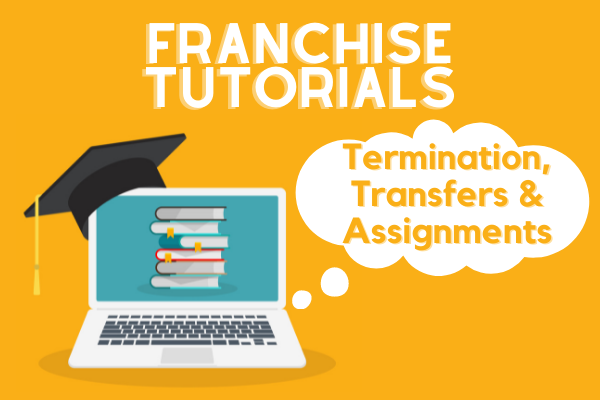All good things must come to an end. When it comes to franchising, this can be especially true. At some point during the franchisor/franchisee relationship, there may come a time when a decision is made to bring the partnership to a close.
The reasons for doing so will vary and can be as simple as you choosing not to renew your franchise agreement after your term is complete. However, there are circumstances when the reasons for termination are a little more in-depth.
For example, you may be in breach of the franchise agreement. Whether it be failure to pay royalties or non-compliance with franchise standards, if you don’t fix the problem within an allocated time, your franchisor has the right to terminate your business relationship.
Ultimately, you decide whether your agreement comes to an end based on your actions. Yes, franchise systems minimize the risk of failure, but that doesn’t mean you are immune to it. Businesses fail all the time and for many reasons.
If for some reason you franchise is failing, it’s important to know that you have choices. Once such option is selling the business, thus transferring or assigning the franchise agreement to a new franchisee in the system. This in an ideal choice for many franchisees, as you will recoup some, maybe even all, of your investment.
Be advised that you don’t necessarily need to transfer your business if it’s failing. Sometimes your business is exceeding expectations and you may want to sell it to get a return on your investment. Alternatively, you may be ready to try something new or be ready for retirement. Owning a franchise does not have to be a life sentence if you don’t want it to be!
If for some reason you do decide to sell your franchise unit, your franchisor will want to oversee some aspects of the sale. First, they’ll want to approve any advertising that you do for the business sale. Next, they’ll want all your royalties and fees paid in full at the time of the transfer. And most importantly, they will need to approve the new franchisee taking over your business.
In unique circumstances, a change in business ownership may take place and you may decide to assign shares to potential investors, employees, or even family members. Similar to when you sell your business, your franchisor will need to approve any new shareholders and the assignment of shares.
When all is said and done, no matter how and why your partnership ends, when the agreement is terminated you will immediately stop doing business under the brand. Make sure you return confidential operations manuals and pay all outstanding fees to your franchisor. Most importantly, look back at your time in the franchising world as a positive one!
——————————————————————————–
Disclaimer
The opinions or viewpoints expressed herein do not necessarily reflect those of the Canadian Franchise Association (CFA). Where materials and content were prepared by persons and/or entities other than the CFA, the said other persons and/or entities are solely responsible for their content. The information provided herein is intended only as general information that may or may not reflect the most current developments. The mention of particular companies or individuals does not represent an endorsement by the CFA. Information on legal matters should not be construed as legal advice. Although professionals may prepare these materials or be quoted in them, this information should not be used as a substitute for professional services. If legal or other professional advice is required, the services of a professional should be sought.

